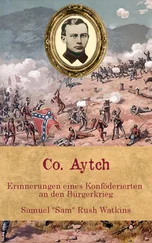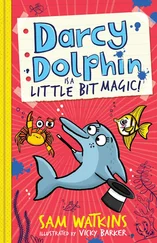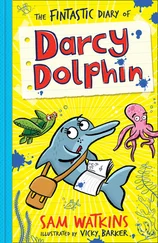Ray’s least favorite was the trivia show Cerebral Weasel , for he never knew any of the answers. His self-esteem recuperated during Money Dash , and his loins flared throughout prime time, which brought perhaps The Undead Sheriff, The Reluctant Clairvoyant or Torture Trio , a police procedural in which the CIA’s top three interrogators, all single, traveled to exotic rendition locales around the world. Another good one was Mind/Body , the erotic drama set in a mental ward, featuring an endless courtship between a Don Juan albino serial killer and his sultry young psychiatrist. Ray and Sal howled during Laughing Gas , a raunch-com about dentists innovating a myriad of ways to violate their unconscious patients, but only occasionally chuckled through two late-night shows whose topical opening monologues they never quite followed, and whose guests’ patter made them feel like disappointments, for the stars beseeched them to go see movies they never would. Sal grew defensive during these segments, and classified all the stars into three categories: gaylords, major sluts, and Scientologists. Ray often fell asleep during these interview portions, or during the sketch comedy show that followed, soothed to sleep by canned laughter.
Weekend mornings meant cartoons, which were made by computers now and cheapened for it, they agreed. But before those, on Sunday, while many other inmates went to Mass, was Ray’s absolute favorite: Sunday Java , where elderly commentators asked tough questions, like, Whatever happened to vacuum repair shops? And, What exactly are women carrying around in their giant purses? “Planners!” hooted Sal, incredulous. “Water bottles!” But Sunday Java ran solemn segments, too, genuine weepies featuring cancer babies whose lemonade stands outlived them and retarded boys who made Ig sounds shooting the game-winning baskets and mothers who nearly aborted the children who grew up to supply them with precious life-saving marrow or organ or blood. One Sunday Java segment, “On the Lam… with Gerald Hopson,” always made Ray hold his breath.
Gerald Hopson told the stories of fugitives — murderers and kidnappers, cult leaders and enemies of the state. He conjectured their whereabouts and encouraged viewers, whom he called citizens, to report any sightings to the proper authorities. In this regard, “On the Lam… with Gerald Hopson” was far from unique. But unlike his trench coat — clad counterparts, Gerald Hopson was genuinely fascinated by the moral ambiguity of the alleged crimes. He stressed that his subjects were innocent until proven guilty, and he speculated not only about their motives but also the conditions that might have driven them to thievery, fraud, or murder. Gerald Hopson pondered, with gravelly voice and swaying neck wattle, whether each of us had versions of these criminals inside us. The greatest injustice, Gerald Hopson proffered, was not the crime unsolved but the mind unknown, and it was this stain he begged his fellow citizens to scrub. “Answers to the questions are out there,” his closing monologue insisted, “and will be delivered us when the accused stands before the mantle of justice . Until then, they remain… on the lam .” That was a nice idea.
Limbo Mine was full of surprisingly nice ideas. Ray did not know how far down they were but found he did not miss the surface. Here it was always cool and dim, always a gentle lime twilight. The abandoned catacombs of desert sourdoughs had delivered him from the unrelenting sun, finally, left him with his notebook, the starlet’s buttery satchel, and his jug, though he hardly looked at these. Talc statuettes smiled down on him and the forgiving powder walls absorbed most unpleasant sounds. The TV went on and on, quietly, and simple Sal scraped his figurines and everything always worked out in the end.
—
It was somewhere in this cul-de-sac of routine that Sal ran out of characters to carve, and Ray suggested he make a politics set. “I like it,” said Sal. “More serious. Issues and shit.”
And like his work, Sal seemed to turn serious, too. The thing Ray needed to know about Sal was that Sal had a super active mind. He was, he admitted, something of a stimulus junkie. Add that to his ingenuity and he could be hard to keep up with.
“I’m UTW,” Sal would announce in what he called his language, which was not a language but a system of inscrutable acronyms. UTW meant Under the Weather, which meant depressed, which Sal had honestly become lately, but could not or would not say why.
At mealtimes there came “DYWYP?” pronounced dee-weep : Do You Want Your Corn Porridge? Ray always said he did but never seemed to.
“DYHAGBH?” pronounced dye-hag-buh meant, Do You Have a Girl Back Home?
There was “WYHAH?” pronounced why-ha : Where You Headed After Here?
Ray declined all of these conversational invitations.
Finally, from beneath the considerable shade of his cowboy hat, Sal admitted that he had come to find Ray a lacking roomie. In all the time Sal had been mateless, he had assembled a perfect bunkmate in his mind, built him mostly of TV clichés, and it turned out that Ray fell short of this ideal in nearly every single way.
“For one, you never ask me, ‘What’s your story?’” said Sal, which was true. Ray had drawn that line in his mind, because while he could describe Luz and Ig around Limbo Mine for purposes of finding them, to sit in the cell trading stories with Sal about where they came from and for whom their hearts ached would be to admit something that, despite the comforts of Limbo Mine, Ray was not ready to admit.
Sal said, “And we never talk philosophy, for example.”
Ray the disappointment said, “I’ve never really known what that means, philosophy.”
Sal sighed. “It’s one of those things that’s so all around you that you can’t see it.” He scraped at the talc president’s lapels. “It would help if you had something to tend.”
“To tend?”
“A mouse, say. Or a falcon. Maybe a snake you raised from an egg.”
“I don’t have anything to tend.”
“That’s POP,” said Sal. Part of the Problem. Another POP was that Ray never imparted to Sal any chestnuts of wisdom, nor, more troublingly, did he ever in turn ask Sal to expound upon his outlook on life, despite the fact that Sal was keeper of a vast bureaucracy of insight, much of which came to him on the chamber pot, his thinking throne, and which he punctuated by the tipping up then tipping down of his ten-gallon, like the hero on The Undead Sheriff .
“Are farts pure methane gas or are there poop particles mixed in?”
“Why do I feel ready to burst the second I take my pants down? Could the butthole have an auto-somatic reaction to fresh air?”
“Doesn’t it seem odorless? I think the porridge is engineered that way. Thus, our shit does not stink!”
Detainees awaiting relocation were required to write letters, weekly, to their sponsors. Ray’s were addressed to Aunt Hennie and Uncle Randy in Milwaukee, and while early epistles were generic and stillborn, Ray soon took to writing for the entire mandatory hour rather than risk more of Sal’s wisdom, for Sal seemed for some reason exempt from the weekly letter-writing session. Soon, Aunt Hennie and Uncle Randy metamorphosed in Ray’s mind, the lie of them shuddering silvery gunk from its wings. It was a familiar feeling, and he welcomed the reunion.
Aunt Hennie was of Hungarian stock, devout and stoic, but could turn blubbersome without warning. So emotionally repressed that she cried at commercials for cell phones and fast food but not at the deaths of either of her parents. When Ray came to visit she forced him to scoop big handfuls from a dish filled with M&M’s color-coordinated with the season. Every Christmas Aunt Hennie made a different gingerbread house, each year’s design more ambitious than the last — a Tudor with icing icicles and working lights, a Cape Cod with white chocolate shingles, a ski lodge made from pretzel logs, a Buddhist monastery, the White House, the Taj Mahal, the Sagrada Família. She worried about Uncle Randy, who was hard and like most men of his generation you had to lube with a few brewskis — local only, for he worked at one of the big brick breweries chugging on the waterfront. Only then would he talk at length about the boy he lost, Ray’s cousin Paco (Ray was not good with names), who fell through pond ice playing hockey. Paco had not even liked hockey, that Ray could recall, and even Aunt Hennie had wondered when Paco pulled his musty gear from the basement that bright snap of a morning. No one said suicide , but Uncle Randy said that Paco had always been both here and gone. He wished Aunt Hennie could put him from her mind, though he himself could not. Aunt Hennie and Uncle Randy were not perfect, but Ray envied how contained their problems were, not as diffuse and inoperable as black ink dripped into a glass of water. Ray came to enjoy writing them with all the normal advice he was never asked to give: Talk to her, Uncle Randy, I know you’re better than you think you are. What a salve to heal his beloved aunt and uncle this way, what a relief finally, after years of manning various bellows, to waft away a black cloud! But eventually Aunt Hennie and Uncle Randy’s failure to respond hurt his feelings.
Читать дальше












